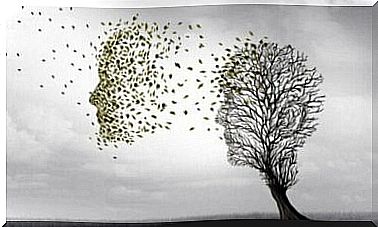The Night Feeds Our Worries

The night is our rest time, a time to relax and finally remove the backpack with our worries we have carried and filled up during the day. That’s what the theories say.
Now, however, many times we can not help but think about everything that happened during the day. Our chores at work or the plans we have tomorrow… It’s like a review of everything we need to do.
You have probably heard a thousand tips on how to get a good night’s sleep, how to clear your mind of worries and create new habits that facilitate good sleep before you go to bed. When all goes well, the night is one of the most pleasant, relaxing moments during the day. But when life is not going well, it can be a challenge.
The lights go out, everything is quiet and we stand alone with our thoughts. It does not seem like a bad plan until our worries attack us. We are surprised and there is nothing we can do to calm the inner voice that reminds us of our problems. When you can not make that voice quiet, you know you have a very long night ahead of you.

Silence comes with worries
Consider the following scenario: you are watching TV, but you are tired and going to fall asleep. At the next commercial break, you will take the opportunity to go to bed. You brush your teeth and lie down. Tomorrow will be a new day. But when you close your eyes, everything that bothers you appears and keeps you awake.
This scenario is very common. We have our minds occupied with a nice movie or a book, but when we are alone with our consciousness, everything we have buried during the day comes to the surface.
From time to time, our worries are not what prevents us from sleeping, but rather ideas. When we are in bed, we come up with all kinds of ideas. We start thinking about how we can do a particular project, maybe even lots of ideas for the book we always wanted to write. Goodbye, sleep ! We spend hours wandering through ideas that we completely forget tomorrow.
Our worries and problems are magnified in bed
The biggest problem is not necessarily that our worries overwhelm us at night, but rather that they seem bigger than they are. Worst of all, they seem to have no solution. We see them as very negative and do not know how to deal with them. But then we get a couple of hours of sleep inside and discover that our problems are not as big as they seemed. Twisting and turning and anxiety fooled us.

We can spend hours going through the unpleasant conversation we had with our colleague. We analyze every silence, every word, nuance and tone of voice we used. We jump to conclusions left and right, sometimes unrealistic. Tomorrow everything will probably go back to normal, but we will do it again and again.
A problem that we do not consider important during the day can seem enormous at night. Perhaps the feeling of helplessness and inability to fix it is related to the “loneliness” we have at night. We are alone with our problems. No one can calm us down or help us, and that increases our worries.
Techniques for cognitive deactivation at bedtime
There are many techniques that aim to end insomnia. Sleep health is one of the keys, which is about arranging optimal environmental conditions (temperature, noise, light) and physiological conditions (relaxed) through good habits. But when your mind keeps you from sleeping at night, there are special techniques that can help.
These are some of the cognitive behavioral techniques that aim at cognitive deactivation at bedtime :
- Paradoxical intention. This technique is to follow your thoughts, get out of bed and even put them on paper. That is, address them before going back to bed.
- Observation of thoughts. Be aware of what you are thinking about and let go of it. You can use symbolic thinking: imagine putting the thought in a jar.
- Meditation. Try to clear your mind. You can use a mantra or a cognitive task that requires attention, but not emotion. For example, say the months of the year backwards.
- Directed fantasy. Proposed by Harvey in 2001, this means using imagination directed at a particular idea or image that is not exciting. This way you avoid activating your thoughts. Imagine yourself in a South Sea paradise, for example.
- Cancel your time in bed. Get out of bed after more than 20 minutes without falling asleep, and go watch some TV or read. This will disrupt your thought process.

It has been shown that trying to control your thoughts by asking yourself to stop thinking about it is actually something that makes you think about it more. However, these techniques can be helpful in clearing your mind, relaxing and eventually falling asleep.









